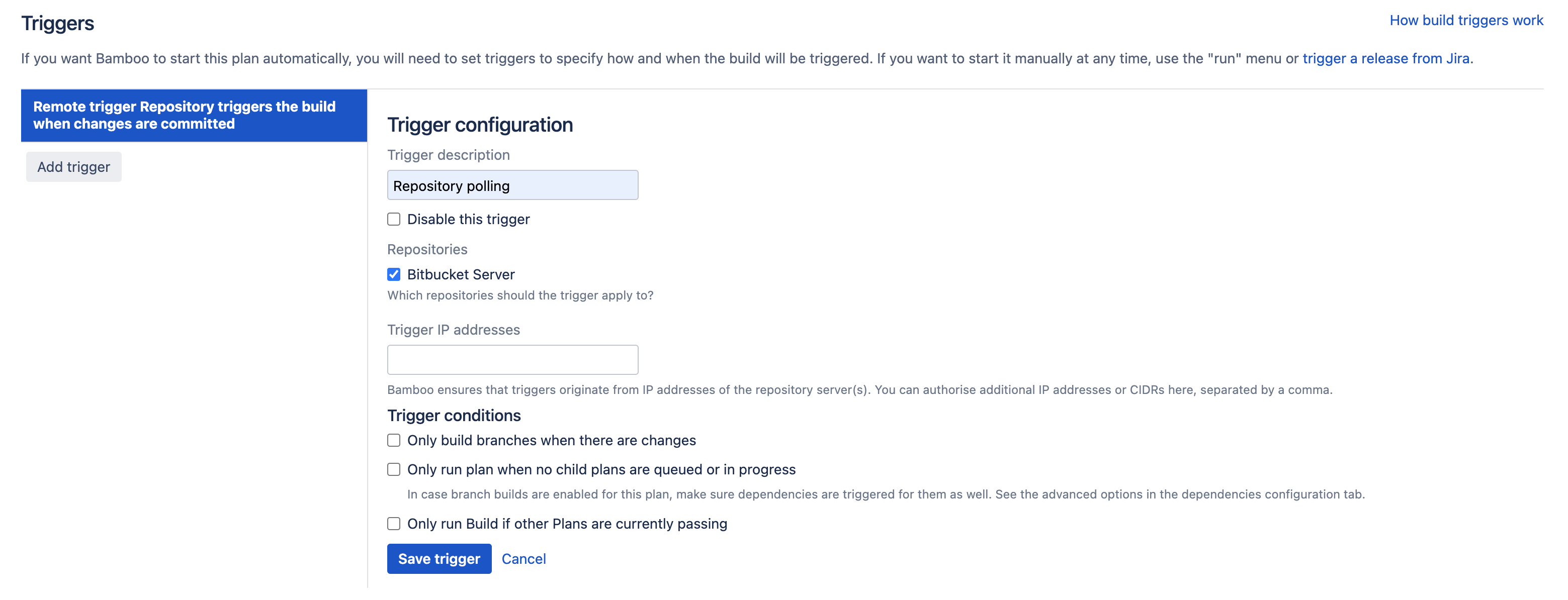Repository triggers the build when changes are committed
1. Configuring your source repository
Configure your source code management system's repository to send post-commit event messages to Bamboo. These messages tell Bamboo to begin building the plans that use this repository.
You can download the scripts using this link. Use the same SVN script for Git. Copy the scripts to your repository. The scripts can also be found in the
/scriptsfolder of your Bamboo Installation Directory.- Depending on which operating system your repository is running on, you may need to edit the scripts. The scripts assume that
wgetis in/usr/bin/; if this isn't the case for your repository (e.g. Solaris 10 has it in/usr/sfw/bin/), edit the scripts and change/usr/bin/to the appropriate location. - Ensure that the user which Bamboo is running has appropriate file permissions to execute the scripts, i.e. the scripts should be executable by non-root user(s).
2. Configuring Bamboo to respond to post-commit messages
Before you begin:
- Triggering a build when there is no repository update — Bamboo will ignore build triggers if the local working copy and the repository copy have the same revision numbers. When testing your build triggers, ensure that the local working copy is not the latest version - if this is the case, Bamboo will take no further action.
- If you're using the Bitbucket Cloud Bamboo post-push hook, ensure that the user you are using to authenticate triggering the build has the build permission on the plan you are attempting to trigger.
To configure Bamboo to trigger a build on code check-in:
- From the Bamboo dashboard select Builds > All build plans.
- Locate the plan in the list and select the edit icon () to display the plan's configuration pages.
- Select the Triggers tab, then Add trigger.
- Select Remote trigger.
- Bamboo displays the available repositories for the plan, as previously configured on the Source repositories tab. Optionally, enter a trigger description. Select the repositories that this trigger should apply to.
Only enter an IP address in Trigger IP addresses if you want Bamboo to trigger on post-commit messages from other than the primary IP address for the repository.
If you use a Mercurial or Git repository then you must type the IP address of your repository host in Trigger IP addresses. For Bitbucket Cloud the current outbound IP addresses can be found at Access Bitbucket Cloud from Behind a Firewall.
- Select Save trigger.
